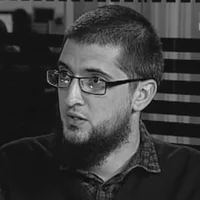For over two decades, the aberration of the so-called War on Terror was symbolised by the men in orange jumpsuits at Guantanamo. Today, in Britain, it is embodied by the red jumpsuits worn by Palestine Action activists — imprisoned and now banned for taking direct action against genocide.
The UK government’s decision to proscribe Palestine Action is more than a legal manoeuvre; it will be seen by many as a declaration of war on objectors of conscience. Palestine Action’s campaign has struck at the material lifeline of Israeli militarism — not through lobbying or petitions, but through physical disruption. Their message is clear: Britain should not aid and abet occupation and genocide.
The state’s response has been swift — surveillance, raids, prosecutions, and now proscription under the Terrorism Act 2000.
From classrooms to courtrooms: A crackdown on solidarity
The targeting of Palestine Action is shocking, but not surprising. It is the culmination of years of escalating repression against the anti-genocide movement.
In 2021, Education Secretary Gavin Williamson instructed schools not to engage with organisations that reject “Israel’s right to exist,” while encouraging Zionist groups to shape education. Soon after, CAGE received reports of students suspended for wearing Palestine badges, banned from using the flag’s colours, or referred to Prevent for discussing Palestine.
In 2023, Home Secretary Suella Braverman told police chiefs that chants such as “From the river to the sea” could be considered a public order offence. This translated into aggressive policing and disproportionate arrests at protests.
Workplaces were not spared. Individuals were reprimanded or suspended for expressing solidarity. Universities cracked down on student protests, prompting a formal rebuke by the UN Special Rapporteur on freedom of assembly. LSE faced direct criticism for disciplining students calling for divestment from companies complicit in Israeli war crimes.
Terrorism powers were even used to arrest Palestine Action members who disrupted the flow of arms to Israel.
It is in this context that Riverway Law — and later, CAGE International — submitted applications to remove Hamas from the UK list of proscribed organisations. CAGE’s evidence included 24 case studies spanning six sectors. Teachers, doctors, and professionals have been suspended or investigated. Activists have faced house raids, border stops, and detention. Some individuals have had visas revoked or faced deportation. Children as young as eight have been referred to Prevent.
These patterns reveal a discriminatory and politicised system that overwhelmingly targets Muslims and political dissenters. Behind the language of security lies a machinery designed to punish conscience and suppress solidarity.
![A pro-Palestinian activist holding a placard reading 'Stop Arming Israel' protests outside the Foreign, Commonwealth and Development Office against Israel's hijacking in international waters off Egypt of the Madleen, a UK-flagged vessel belonging to the Gaza Freedom Flotilla which was carrying humanitarian aid to Gaza, on 9th June 2025 in London, United Kingdom. [Mark Kerrison/In Pictures via Getty Images]](https://i0.wp.com/www.middleeastmonitor.com/wp-content/uploads/2025/07/GettyImages-2218882938.jpg?resize=920%2C613&ssl=1)
A pro-Palestinian activist holding a placard reading ‘Stop Arming Israel’ protests outside the Foreign, Commonwealth and Development Office against Israel’s hijacking in international waters off Egypt of the Madleen, a UK-flagged vessel belonging to the Gaza Freedom Flotilla which was carrying humanitarian aid to Gaza, on 9th June 2025 in London, United Kingdom. [Mark Kerrison/In Pictures via Getty Images]
Two decades of building a repressive state
The repression of Palestine Action and Palestine solidarity did not occur in a vacuum. It rests on two decades of legal architecture built under the guise of counter-terrorism.
Over the past two decades, the UK has quietly built one of the most expansive and authoritarian legal regimes in Europe. Under the cover of national security, the successive government designed a permanent infrastructure of repression — targeting political dissent, Muslim identity, and expressions of conscience.
Dozens of individuals were indefinitely detained without charge or trial for several years after 2001, eventually declared unlawful, yet repackaged through new legislative tools.
So-called TPIMs function as a form of house arrest without charge or trial, placing individuals under indefinite restrictions, often based on secret evidence they are not allowed to see or challenge.
Under Schedule 7, individuals — especially Muslims and political activists — are interrogated for hours without suspicion, with refusal to answer constituting a criminal offence.
TPIMs allow house arrest without trial, based on secret evidence.
Citizenship deprivation powers allow the government to strip nationality in secret, rendering people stateless.
Exclusion orders have barred Muslim scholars and speakers from entering the UK on vague, unchallengeable grounds.
Perhaps the most far-reaching element of this system is the Prevent duty. Mandated in schools, hospitals, universities and public services, Prevent deputises teachers, doctors and civil servants into a state-led surveillance regime. CAGE has documented hundreds of cases in which children as young as four have been referred for expressing pro-Palestine views or Islamic identity.
Resistance will continue
Palestine Action belongs to a long tradition: one of conscience, sacrifice, and direct intervention in the machinery of violence. Like the anti-apartheid movement before them, their legitimacy lies not in state approval, but in moral necessity.
This repression will not stop the movement. Palestine solidarity is not an organisation that can be banned. It is a growing, living refusal — one that transcends divisions. It does not need permission to exist, and it cannot be outlawed into silence.
The face of resistance is not chaos — it is clarity. It is the refusal to remain complicit in genocide. It is action taken while others look away.
Palestine Action may be proscribed. But the arms still flow. The bombs still fall. The injustice remains.
And so must the resistance.
The views expressed in this article belong to the author and do not necessarily reflect the editorial policy of Middle East Monitor.

![Palestinian flags and banners on display on June 23, 2025 in London, England. [Ben Montgomery/Getty Images]](https://i0.wp.com/www.middleeastmonitor.com/wp-content/uploads/2025/07/GettyImages-2221681346.jpg?fit=920%2C612&ssl=1)







